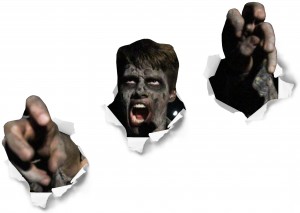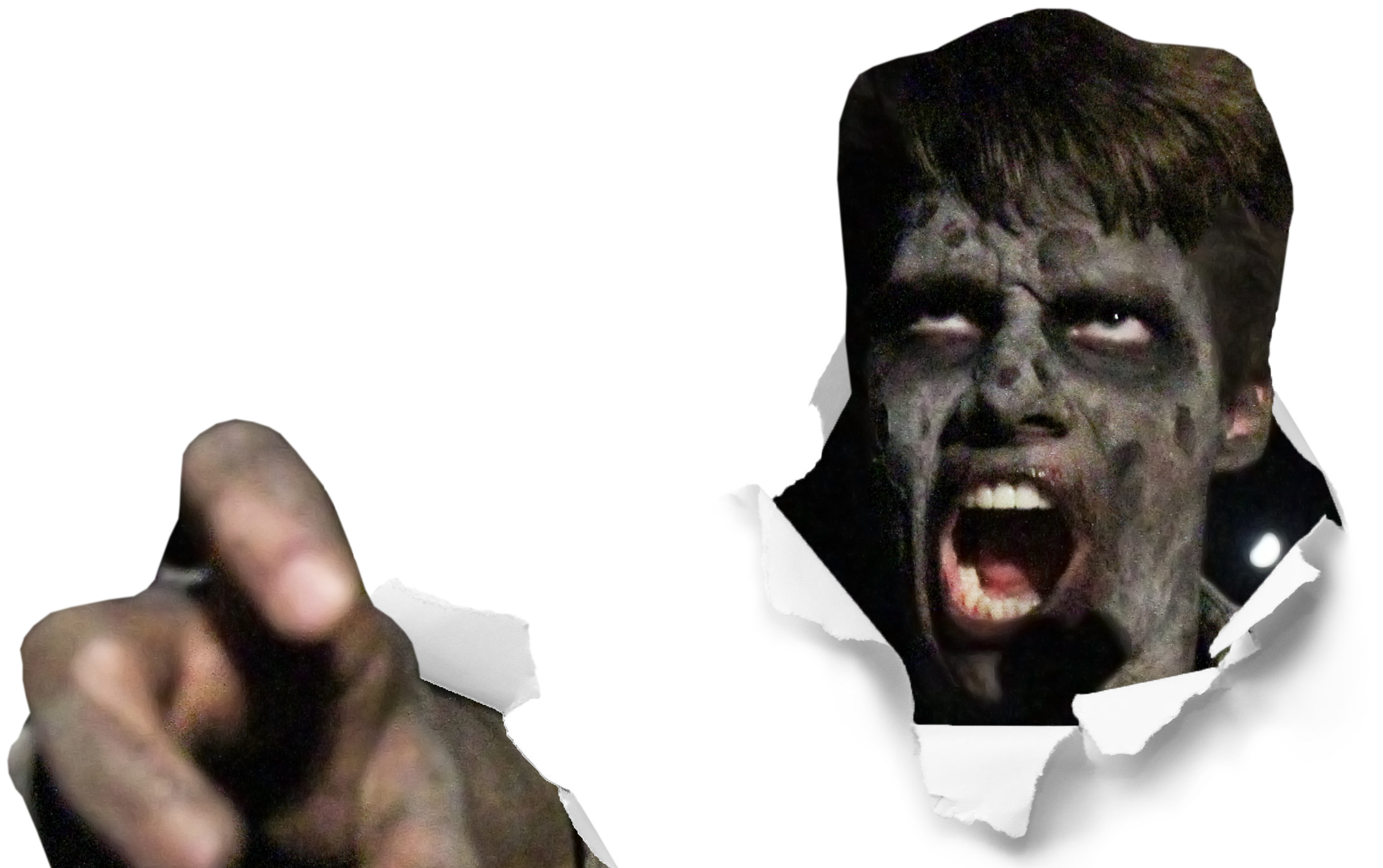
Reporter
In the event of a zombie apocalypse, B.J. Parker, an Atlanta doctoral candidate in the religion department, would know how to survive.
If he were in the backyard of his two-story, 100-year-old home in Waco preparing a garden, his slobbering pitbull Petey panting beside him and a peeling cadaver shuffling toward him, he’d know what to do.
“A headshot or a brain trauma is the only thing that can kill a zombie,” he said.
He would lift his shovel and bash the zombie’s head. As the zombie lied on the ground hissing and gargling, Parker would sever the zombie’s head from its neck — right in the trachea. Finally, he would deliver the fatal blow to the zombie’s forehead with a final crunch.
Parker’s knowledge of zombies comes from collecting zombie comic books, watching zombie films and researching for a paper he wrote on “The Walking Dead,” a TV series on AMC. Parker presented the paper, “Living with the Walking Dead: A Close Reading of the Character of Rick Grimes,” at the Southwest Commission for the Study of Religion.
“Zombies typically end up being a medium for humanity to explore ethical issues that are important to humanity without the issues being directly connected to us,” Parker said. “Zombies are always associated with apocalypse; the setting forces the characters to get at what makes a human, human.”
In 1932, the first zombie movie, “White Zombie,” was released. According to the Wall Street Journal, between one-third and one-half of all zombie movies ever made have been released in the past decade, which demonstrates the growing popularity of zombies.
There has yet to be a zombie apocalypse, but for Parker and many others, the idea is intriguing.
“Maybe on a subconscious level, there is something attractive to me about that kind of difficult life,” he said. “If you want to live, it forces you to go backwards in time. Living would require brutality and extreme effort as opposed to sitting in an air conditioned house.”
For him, the appeal is not in the act of violence but the thought process behind the actions.
“I’m almost ashamed to admit it,” he said. “There is a thrill in it. The thrill isn’t in striking a zombie on the head with a shovel. The appeal is in living a life of meaning — having to make ethical decisions to survive.”
Besides the appeal of ethical questions, the zombie genre is popular for other reasons.
Reporter Doug Gross, in his CNN article “Why we love those rotting, hungry, putrid zombies,” correlated the use of zombies in popular culture to what was going on in history. He said zombies provide a flexibility to explore various real-life issues humans face.
“Zombie movies have given viewers a way to consider, if indirectly, problems such as natural disasters, technology gone awry, deadly viruses and the daily grind of their own lives.” Gross said.
Parker shared Gross’s view of zombie culture.
“For example, in the 80s, zombies were used as a metaphor for capitalism,” Parker said.
The idea of using intelligence to manage limited resources is also a large aspect of the zombie apocalypse genre.
Canton, Ohio, doctoral candidate Adam Marshall has played zombie video games such as “Resident Evil” and “Silent Hill.” He said zombie games are popular because they have strong story elements.
“Most games do not present a challenge of survivability,” he said. “With zombie games, you have to use the resources at your deposal to survive.”
Others think zombie popularity has grown out of the fun that comes with the supernatural genre.
Amanda Salinas, a previous Baylor engineering student who plans to apply for Baylor’s nursing school in Dallas, tweeted a picture of a white-board drawing of Baylor during a hypothetical zombie apocalypse.
The drawing had a key with icons for zombie nests, weapon stashes, food routes and people.
“After the hype of vampires and werewolves cooled down, zombies got popular,” she said.
Salinas said she is a fan of “The Walking Dead” and she also enjoyed the movie “Warm Bodies,” which tells the love story between a zombie and a human.
“It was an interesting twist,” she said.
Salinas said the zombie genre has a flexible and mysterious plot that makes it so appealing.
“We are attracted to the zombie genre because we don’t know anything about it,” Salinas said. “There could be a story like ‘The Walking Dead’ where there is no hope or a story like ‘Warm Bodies,’ where there is hope.”
Although Parker appeared confident in his ability to live through a zombie apocalypse, Salinas was not so sure.
“I definitely would not survive unless someone was taking care of me,” she said. “I can shoot a gun, but I could not handle masses of zombies. That’s my biggest fear — a mass of zombies coming for me.”






